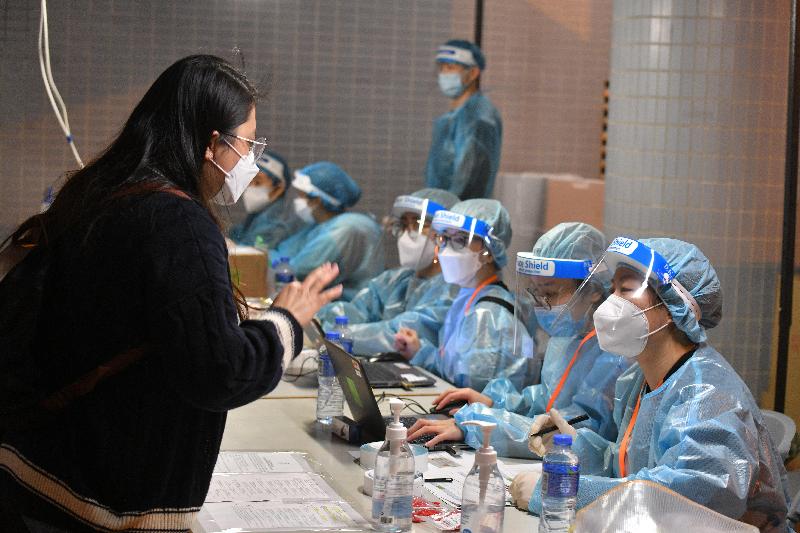LCQ9: Quality of drinking water in public rental housing estates
​Following is a question by the Hon Yung Hoi-yan and a written reply by the Secretary for Transport and Housing, Mr Frank Chan Fan, in the Legislative Council today (February 3):
Question:
There have been instances from time to time in which residents of public rental housing (PRH) estates found impurities or contaminants in drinking water. For example, some residents of Po Lam Estate in Tseung Kwan O found black precipitates in drinking water in December last year. The residents concerned have relayed that upon receipt of reports of such incidents, the authorities generally only took interim measures (e.g. deploying water wagons for supplying water to the affected residents) without fundamentally solving the problem of alleged contamination of drinking water. Quite a number of residents of PRH estates are worried that consumption of problematic drinking water over a long period of time will expose them to health hazards. In this connection, will the Government inform this Council:
(1) of the number of reports received by the authorities in each of the past three years concerning problems with drinking water in PRH estates; (i) the district, (ii) the name of the estate, (iii) the age of the building, and (iv) the respective numbers of units and residents involved in each incident; in respect of each incident, the numbers of days and times for which water wagons were deployed for temporary water supply, the time taken for conducting tests and investigations and the results thereof (including the impurities contained in drinking water and the causes for such a situation), as well as the corresponding and follow-up measures taken;
(2) whether it will conduct a comprehensive inspection of the fresh water supply systems in all PRH estates; if so, of the specific timetable, as well as the financial and manpower resources needed; if not, the reasons for that, and what new measures the authorities will take to prevent drinking water problems from occurring in PRH estates; and
(3) whether, in order to strengthen the confidence of residents of PRH estates in drinking water safety, the authorities will conduct drinking water sampling tests for PRH estates on a regular basis, and comprehensively review the construction of the fresh water supply systems for public housing (including the materials, works implementation procedures and specifications); if so, of the details; if not, the reasons for that?
Reply:
President,
Having consulted the Development Bureau, my reply to the question raised by the Hon Yung Hoi-yan is as follows:
(1) In the past three years, there were two incidents involving deposits or impurities found in fresh water in public rental housing (PRH) estates under the Hong Kong Housing Authority (HA) which were related to the public fresh water supply network. Details of these incidents are set out at Annex. When an incident regarding suspected contamination or impurities in fresh water occurred or comes to our attention, staff of the HA's estate offices will immediately check the internal plumbing systems in accordance with the Housing Department's guidelines and liaise with the Water Supplies Department (WSD) to follow up on the water quality situation where necessary with a view to relieving concerns of the residents.
(2) The WSD launched the Water Safety Plan for Buildings (WSPB) in 2017, which adopts a risk-based, multiple-barrier approach that helps property owners and property management agents manage the internal plumbing systems of buildings effectively through risk assessment; implementation and monitoring of appropriate control measures; and regular auditing. The objective is to safeguard drinking water quality in the buildings in the long term. The implementation of the WSPB can help property owners and property management agents identify the potential risks early, so as to take appropriate follow-up action with a view to ensuring the drinking water safety.
The HA has all along attached importance to the water safety of its buildings and participated in the WSPB for the PRH estates in stages since the fourth quarter of 2018. Relevant work is estimated to complete fully in 2022-23.
(3) The WSD regularly monitors the drinking water quality in order to ensure the safety of the drinking water supplied. Apart from water treatment works, service reservoirs, connection points at the public fresh water supply network, the scope of monitoring includes random collection of water samples from publicly accessible consumers' taps (including but not limited to those in the management offices and markets of PRH estates, etc.) from the territory for testing. When there is any irregularity in the water sample, e.g. deposits or impurities found in the water, the WSD will take further investigation and follow-up actions with the property owner and property management agent.
The HA also complies with the Waterworks Ordinance and the WSD's Circular Letters, and has participated in the WSD's Enhanced Water Quality Monitoring Programme across the territory since 2017, under which the WSD tests water samples collected from the randomly selected drinking water consumers' taps, in order to further monitor the drinking water safety of PRH estates.
For newly-constructed PRH estates, the HA set up the Review Committee on Quality Assurance Issues Relating to Fresh Water Supply of Public Housing Estates (Review Committee) in 2015 to carry out comprehensive review of the quality of the fresh water supply in new public housing. The HA has fully implemented the enhancement measures recommended by the Review Committee, ranging from contract specifications, delivery and verification of materials, monitoring during construction to testing upon completion, etc. These measures have strengthened the monitoring of contractors and sub-contractors as well as the control and checking of construction materials, including soldering materials. The HA also complies with relevant regulations in the Waterworks Ordinance on the use of materials and the related procedures in all new public housing developments.
